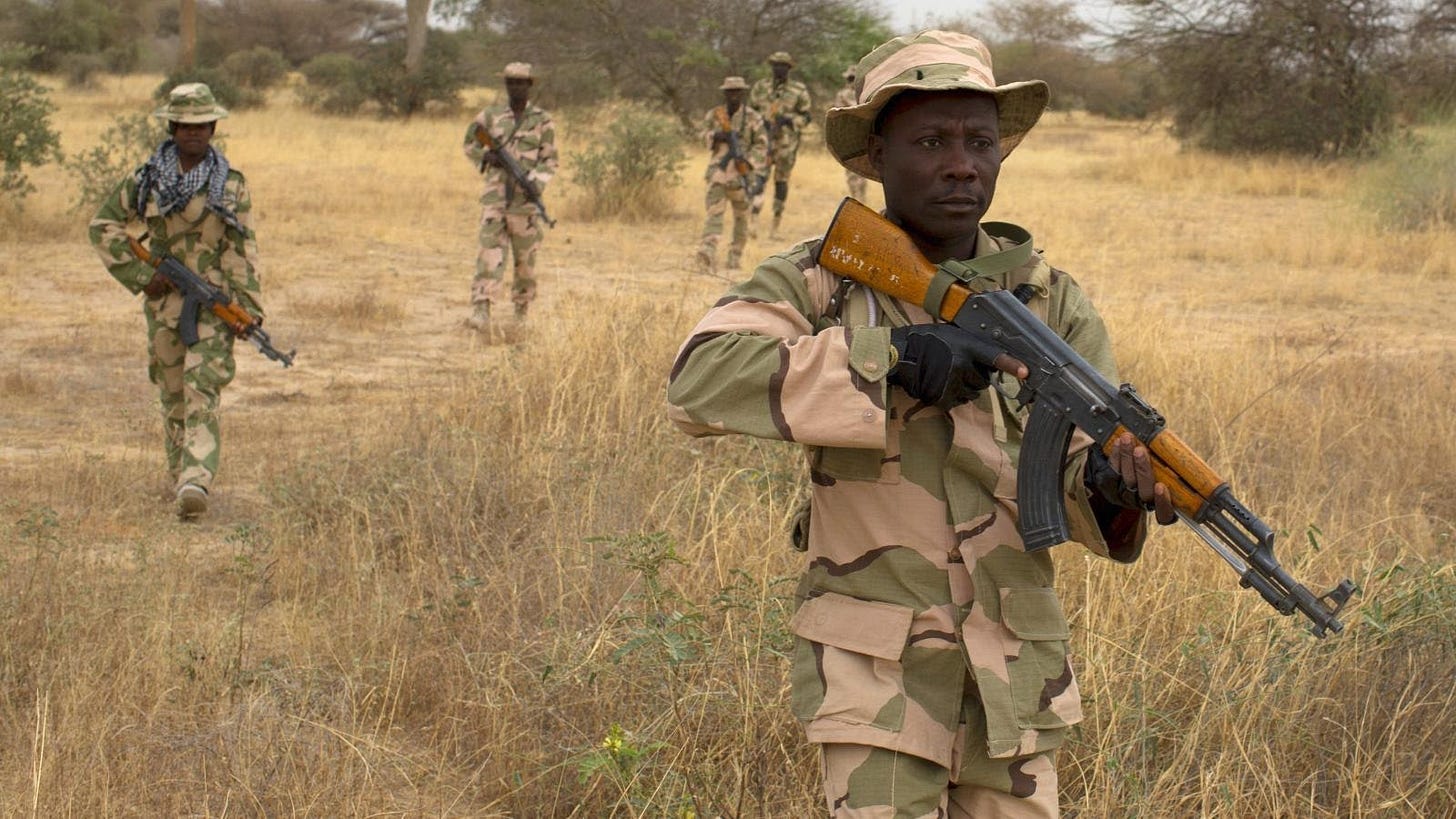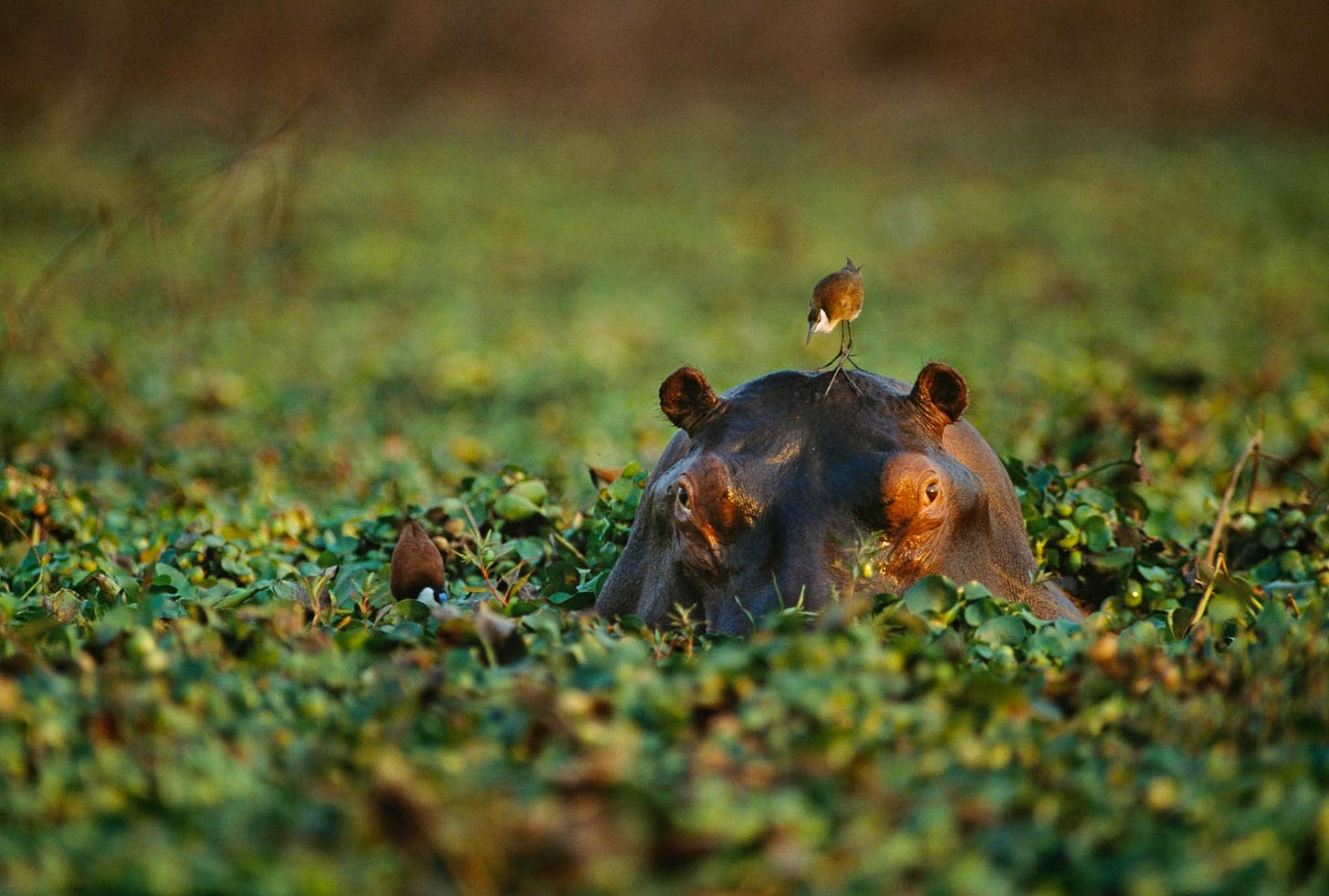Why is this interesting? The ISIS in Africa Edition
On Islamic militants, instability, and news from Mozambique
Joseph Dana (JD) is a longstanding friend of WITI and a South Africa based writer. He formerly edited the opinion pages at The National in Abu Dhabi and served as Monocle's Eastern Mediterranean correspondent and Istanbul bureau chief. Sign up for his newsletter: “Notes from a Fractured Country.”

Joseph here. With our attention focused on Covid-19 and US elections, we can be forgiven for missing all the explosive news out of Mozambique, a place that doesn’t make the news on a regular basis. Yet something is happening there and it has the potential to ripple across the region and beyond.
Here’s the background. After five days of heavy fighting this month, ISIS-linked insurgents occupied the port town of Mocimboa da Praia in Mozambique’s northernmost province. The town is a critical link to the country’s growing natural gas sector, worth roughly $60 billion. It is also considered integral to a $23 billion natural gas project run by the French energy giant Total.
Following several attacks on the city since 2017, in the latest round the insurgents reportedly sank a Mozambican military vessel and held their own against helicopter gunships flown by pilots of the South African private military company Dyck Advisory Group, which was contracted by the government. Insurgency is nothing new in Mozambique’s complicated civil war but the growing sophistication of the fighters and their weapons has created valuable opportunities for ISIS on the ground.
Why is this interesting?
Local grievances in a long-neglected corner of the country are being co-opted to transform the area into the next ISIS hotspot. In typical ISIS fashion, the group joins a local insurgency to add publicity and give a little aid. It then builds its brand off the global publicity of spectacular events, just as it did in the takeover of Mocimboa da Praia. Mozambique’s northern provinces have been the site of a long-simmering civil war driven by poverty and inequality. Much of the fighting has focused on port cities like Mocimboa da Praia. With the discovery of huge natural gas reserves and the possibility of profits flowing to politicians in Maputo, the area is bursting with anger and ISIS is capitalizing on this rage for its own benefit. Yet, ISIS’s focus on Southern Africa can’t be easily dismissed as mere exploitation of local grievance.
While South Africa has been mostly immune from ISIS blowback, recent events have raised the prospect of trouble from ISIS’s second wave in Africa. In July, Durban police raided a kidnapping ring that led to the arrest of five foreigners linked to an ISIS cell responsible for attacks on South African mosques in 2018. The capture of suspected ISIS insurgents inside the country amplified warnings from the extremist group that South Africa should not directly intervene on the ground in Mozambique.
After the port takeover in Mocimboa da Praia, ISIS warned South Africa that Europe and the United States were attempting to persuade the country to start a war, and such a decision would lead ISIS to activate its soldiers against Pretoria. The degree to which ISIS is capable of making good on its threats is unclear. The primary roadblock to intervention is not ISIS’s threats of violence, but rather the regional diplomatic struggles and the complexity of Mozambique’s fragile internal politics.
Mozambican President Filipe Nyusi has repeatedly refused to support regional intervention while also holding back critical intelligence from neighbors and allies. In a desperate attempt to save face and protect natural gas agreements with foreign companies, Nyusi is trying to strike bilateral deals with Zimbabwe to drive a wedge in a unified regional intervention led by the Southern African Southern African Development Community (SADC), a regional organization focused on economic and security co-operation or the African Union.
The situation is, in a word, untenable. Given the sophistication of the latest assault on Mocimboa da Praia and the depth of grievance with the Mozambican government, ISIS is on the verge of entrenching itself in Southern Africa. If ISIS is allowed to create a statelet in the area, the effects will be disastrous for Mozambique and the region as a whole.
The Mozambique attack comes as ISIS is growing its footprint in West Africa and clashing with governments and security forces across the Sahel. Despite setbacks in the Middle East, the group’s ideology is flourishing in ignored pockets of Africa. While this might seem a world away, the reality is that this fire could blaze out of control if neglected. (JD)
Photo of the day:

Photo by Chris Johns
From National Geographic’s excellent photo of the day series: “An African jacana rests on the head of a hippo in the Zambezi River. From this perch, the jacana will pick insects off the river's floating vegetation.” The Zambezi flows through Zambia, Angola, Namibia, Botswana, Zimbabwe, and Mozambique en route to the Indian Ocean. (CJN)
Quick Links:
Istanbul was once the primary transit point for foreign fighters joining ISIS in Syria. The group even had its own gift shop. In 2014, I paid the shop a visit for Roads & Kingdoms. (JD)
The South African government has banned alcohol twice this year as part of its Covid-19 lockdown regulations. In response, South Africans have been getting creative with ways to sell booze online. (JD)
Recent housing evictions and demolitions in Cape Town are reminiscent of the apartheid days. This interview with South African writer William Shoki explores the surprising details. (JD)
Thanks for reading,
Noah (NRB) & Colin (CJN) & Joseph (JD)
PS — Noah here. Variance, my new company, is just getting going with our Alpha. If you work in sales, services, marketing, or engineering and want to try out/give feedback on a tool to help your team work more effectively with their apps, please request an invite on the site. Thanks.
—
Why is this interesting? is a daily email from Noah Brier & Colin Nagy (and friends!) about interesting things. If you’ve enjoyed this edition, please consider forwarding it to a friend. If you’re reading it for the first time, consider subscribing (it’s free!).


